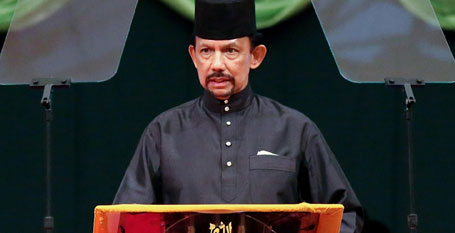The October 2013 enactment of a new code by Brunei Darussalam has been condemned by The International Commission of Jurists (The ICJ). If implemented, the new code would lead to serious human rights violations by reintroducing the death penalty and imposing other cruel and inhuman punishment, including stoning, on a number of acts including consensual same sex relations.
The Shariah Penal Code, enacted by the government of Brunei Darussalam in October 2013, is due to take effect in April 2014. The 2013 Penal Code will reintroduce the death penalty after years of an effective moratorium in the country, and provide for stoning and other forms of torture and ill treatment for a range of ‘mis-conduct’.
The 2013 Penal Code provides for the death penalty as a possible penalty – for both Muslims and non-Muslims – for the crimes of robbery (Article 63), rape (Article 76), adultery and sodomy (Article 82). It also is prescribed as a penalty – for Muslims only – upon conviction for acts constituting extramarital sexual relations (Article 69).
“These provisions in the 2013 Penal Code are a serious step back for Brunei,” said Sam Zarifi, ICJ regional director for Asia & the Pacific, in a letter to the Prime Minister, H.M. Haji Hassanal Bolkiah. “These provisions are not in accord with the commitment made by Brunei as a member of the Association of Southeast Asia Nations to promote and protect human rights in the region.”
In the open letter, the ICJ also stressed that the Shariah Penal Code Order 2013 is clearly incompatible with international human rights law and standards that prohibit discrimination against women and protect the rights to religious freedom and freedom of opinion and expression. The law also criminalizes adultery, extramarital sexual relations and consensual same sex relations, in contravention of international standards.
Read the full letter from the ICJ here.

